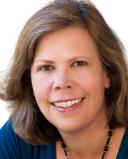
Psychoanalysts—as well as philosophers and scientists before them—have observed that human beings have built-in instincts. Sometimes these instincts are called drives. But, whatever you call them, these gotta-have-it, can’t-live-without-it urges are undeniable.
No doubt, you’ve heard of the death instinct—thanatos. And the life instinct, too—eros. They are the two basic, hard-wired urges necessary for survival and growth.
Psychoanalyst Melanie Klein believed that there are actually three, not just two, basic human drives. The third? Curiosity. She called it the epistemophilic instinct. When you witness the successful development of a multi-billion dollar space rover; when you see it sent 352 million miles into space; when you watch in awe at its perfect landing on the surface of Mars; and when you realize that the whole point is just to learn more about, well, everything; then you’ve got to believe it, too!
I like Klein’s fancy word for this curiosity drive. When you break it down, epistemophilia is basically the love of knowledge. We human beings want to know. We can’t help ourselves. The questions that the NASA scientists are asking—Where does life come from? How did we get here? What was it like before?—can be thought of as grown-up elaborations of the questions we have been asking since we were young children.
By nature, we are intensely curious about how things work. As soon as we could formulate the questions, we asked them. How are babies made? What’s the difference between boys and girls? What was it like before I was born? Why is the sky blue and the grass green? Why does it get dark at night? To some extent, we are all born scientists.
It is probably quite evident that a drive toward curiosity is helpful in life. It grows the mind, helps us become better problem-solvers, leads us to higher education, and pushes us to creative endeavors of all kinds. Perhaps it is less evident but equally important to see that the drive toward curiosity is of great help in psychological life.

Curiosity is one of the most essential tools for psychological understanding. It is the main tool of a good therapist. One of my favorite psychoanalytic writers, Ella Freeman-Sharpe (1930), put it this way:
"A deep-seated interest in people's lives and thoughts must in a psycho-analyst have been transformed into an insatiable curiosity which, while having its recognizable unconscious roots, is free in consciousness to range over every field of human experience and activity, free to recognize every unconscious impulse, with only one urgency, namely, a desire to know more and still more about the psychical mechanisms involved. 'Benevolent curiosity' is Dr. Jones' admirable phrase."
I love her phrase, too, “a desire to know more and still more.” As a therapist, I’ve got that desire in spades. I wouldn’t be surprised if I say the phrase, “Tell me more about that,” twenty times a day. My patients laugh at me sometimes (respectfully, of course!) when I explore their lives, thoughts, and feelings in such detail. They say things like, “No one has ever asked me that before.” Or “Only you would ask me that question.” One of my patients even accused me of being “pathologically curious.” I took it as a compliment.
If all goes well in therapy, the patient, too, becomes more and more curious. If the truth is felt to be a friend rather than an enemy, then you become free to find out more and more about yourself—about how your psyche works, about how you got here, and about how you might move forward. I believe that the more you know about yourself, the more resources you have to change, to grow, and to make peace with your life. As I like to say, you can’t fix something if you don’t understand how it works.
So I love that the NASA folks named their awesome rover “Curiosity.” I am confident that they will find out more and more about this wild universe of ours and our place in it. And I am confident that we will be the better for it. Perhaps their epistemophilic spirit will be infectious on a personal scale, too. I know it has already inspired me.
Copyright 2012 Jennifer Kunst, Ph.D.
Like it! Tweet it! Comment on it!




